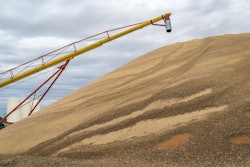
The Brazilian Association of Animal Protein (ABPA, in Portuguese) warned about the risks of the paralyzation and blockades on federal and state roads in Brazil initiated by independent truckers on May 21 to protest against the continuing rise on diesel prices.
As a result of these, ABPA, an organization that represents more than 140 companies and entities related to poultry and pig farming, established a crisis committee to obtain information about the problems caused by movement on the roads.
According to reports from some ABPA associates, the blockades stop the transport of live poultry and pigs, feed and refrigerated cargoes destined to supply Brazilian supermarkets or for exports.
Economic risks
If the situation continues, there is a risk of a lack of products for the Brazilian consumer, said the ABPA in a statement. Even animals can die in the field due to lack of supplies. There are already reports of production units that suspended slaughter shifts. In addition, export contracts may be lost and there is a sharp increase in logistics costs with the reprogramming of cargo shipments.
The losses for the productive sector and for the country are incalculable, according to the ABPA.
The organization supports the motivations of the paralysis, but understands that the movement must preserve the flow of food and inputs for production.
"It is of national knowledge the serious crisis faced by the animal protein production chain, which has struggled for months to preserve the jobs of the sector. Stoping the production will have serious consequences for the whole country, especially in small municipalities where the production system is installed,” the ABPA stated.
Protest against the rise in diesel prices
According to a Reuters report, truckers' protests started on Monday and continued on Tuesday for the second day in a row. They protest against the rise in fuel prices and seek to pressure the Brazilian government “to provide relief from rising fuel costs, which could mean that it either backslides on efforts to close Brazil’s fiscal deficit or interferes in the state-controlled oil company’s pricing policy,” according to the report.
On Tuesday, the Brazilian state oil company Petroleo Brasileiro SA, or Petrobras, slightly reduced costs in diesel, which did not stop the demonstrations. The company began a new policy in last July to review fuel prices in global markets on a daily basis, which allowed them to sell at a profit for the first time in years.
However, although Petrobras raised its share price “to an eight-year high” — a price that fell on Tuesday due to the protests — Reuters reported that this policy change caused the state company to increase the cost of fuel "nearly 50 percent at Brazilian refineries in less than a year.”
"There's no money left for anything else. Everything we earn, we have to spend it in diesel. Our companies are not working. Those prices are absolutely abusive. There are supplies missing in my house. Then it's time to stop and do something," said Nivaldo Felipe, a Brazilian transporter, in statements compiled by NTN24.com.

















